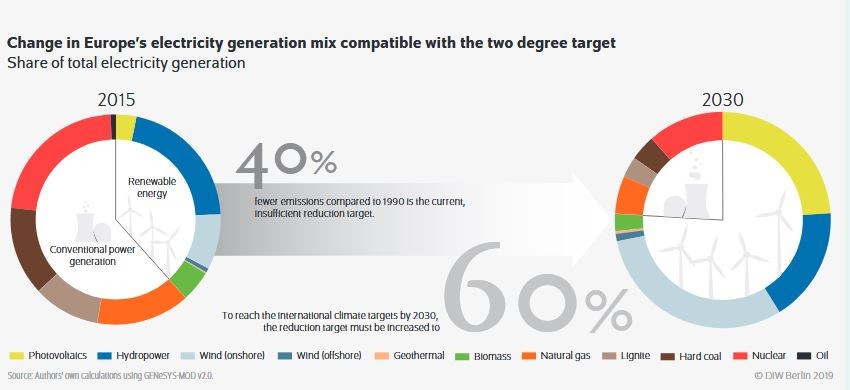EU has to significantly ramp up emissions reduction goal to stay on track for Paris goals – researchers
Clean Energy Wire
The European Union needs to increase its emissions reduction goal for 2030 from 40 to 60 percent less CO2 emissions than in 1990 to comply with the Paris Agreement's goal of keeping global warming below 2 degrees Celsius, researchers of the German Institute for Economic Research (DIW) have found. In a weekly DIW Report (in English), the researchers argue that this significant rise in ambitions is both technically possible and economically viable. The required investments across Europe over the next decade for a "Green Deal" would likely have to surpass 200 billion euros, but "environmental costs saved exceed the additional technical system costs”, the report says. Moreover, the economists argue that the more ambitious emissions reduction goal can be reached solely by replacing fossil-based energy sources with renewables and does not require new investments in nuclear power or carbon capture technology.
The German government recently adopted a new Climate Action Law that stipulates a 55 percent emissions reduction by 2030. The EU’s 2030 climate targets are legally binding for Germany. For sectors included in the European Union's emissions trading system (EU ETS) – power production, energy-intensive industry and civil aviation – there is a combined EU target to cut greenhouse gas emissions by 43 percent over 2005. For non-ETS sectors, such as transport, buildings and agriculture, each country was assigned its own target.


